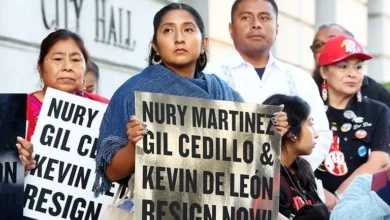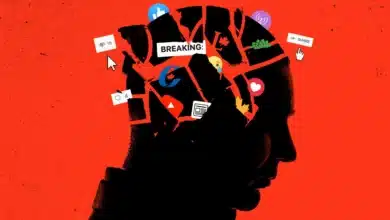A Sweet Bread (Un Pan de Dulce) the Miracle Life of Alfredo Barroso
I am devouring my fried fish as I listen to Alfredo’s story. I am hungry, short on time as I need to return to work, and the fish has bones in it, but I want to hear Alfredo’s story. Alfredo is in charge of a restaurant in San Bruno where I have come to have my late lunch. It is around four in the afternoon.
I don’t know how we started to talk about the disease that sent Alfredo to the hospital for over a year. Everything started when water and pus began to come out of his ear. He did not pay much heed to it. Then one day in 2004 he was at work and didn’t feel good. He went to lie down on a sofa in the back of the restaurant, and his discomfort made him fall asleep.
Alfredo did not wake up until six months later, in a hospital bed, unable to remember anything.
He does remember some days when he could not move his fingers, when he could not reach for his food. The nurses left food on his table but they did not help him eat. There was a call button to call them. He pushed, making a great effort, but still they did not come. Many times they forced him to leave his bed to take a shower. After many months in bed, his body was like jelly. He had to grip the faucet to keep himself from falling down. The nurses only threw water on him.
I finished my fish. “I have to go back to work,” I told Alfredo. Today is Friday, a day after an explosion in San Bruno left four people dead. I was sent to cover the story. But around 9pm, when I finished writing my story, I came back to the restaurant. Miguel Araujo, the owner, offers me food before I return to Sacramento. Alfredo has gone home but Miguel Araujo sits with me and continues Alfredo’s story. This time I am eating a salad and drinking Mexican hot chocolate.
After Alfredo fall asleep in the restaurant’s warehouse, Miguel brought him to San Mateo General Hospital. Doctors found out he had a brain tumor. Miguel asked the doctors to do the test again. He could not believe that Alfredo, a young man in his twenties with no addictions, could have a tumor. Miguel called Alfredo’s father who lived in Michoacan, Mexico, to tell him what was happening with his son. Alfredo’s father, ill and dying, asked Miguel to take care of Alfredo because he would be passing soon. Doctors came back, telling Miguel that Alfredo had a brain infection – not a tumor – but they needed to do a surgery that same night.
The same night that Alfredo was having a surgery, Alfredo’s father died in Mexico. Six months later, Alfredo was ready to leave the hospital. But he suddenly fainted. He had to have a second, more dangerous surgery during which his brain was opened. He was comatose again. After about four months, the doctor told Miguel that the hospital administrators had ordered him to disconnect Alfredo from the machines that kept him alive. The San Mateo Hospital, a public hospital, could not afford to keep Alfredo alive for long. He was not showing any signs of life.
Alfredo was not paying any bills for his medical care. He was covered under MediCal, but by that time, the bill was already over $200,000. Miguel, in his desperation, took Alfredo’s hands and started to talk to him. He knew that Alfredo liked to go to the casinos, and so he began the talk by inviting him to go to the Casino.
“If you do not come with me, I am not going to return to the hospital to see you. I am tired that you are not cooperating. I am telling you, I am leaving you now. Give me a signal that you want to come with me – that you want to live. Otherwise, I am going to leave you here forever, and I am not coming any more to see you.”
Alfredo moved a finger. This stirred the feelings of Alfredo’s nurses and a doctor. One week later, Alfredo woke up from his coma. Miguel found him with his eyes open. Miguel noticed that Alfredo’s eyes followed him wherever he moved in the hospital room. Alfredo did not remember anything. He confused Miguel with Miguel’s deceased brother. He frequently asked what day it was and what time it was. Alfredo recovered slowly, one step a day. He had to learn to speak again. He had pipes in his throat for a long time so he had trouble speaking. Finally, fifteen months after he was admitted to the hospital for the first time, Alfredo was released.
Months later, he returned to work in the restaurant with Miguel.
One day, Miguel invited Alfredo to go to the casino. Alfredo said he was not going because he needed to call his father to Mexico.
Alfredo said, “I am very upset with him. All the time that I call my home, he is not there. I think he is drinking.” Miguel asked him to call another time. On the way to the casino, on the highway, Alfredo insisted that he call his father. There was no response, and Alfredo became very mad. Miguel had no choice.
“Your father is already gone,” Miguel said. “He passed away the same night that you were having your first surgery.”
Alfredo screamed, a big scream of pain. Miguel made an urgent stop and pulled over to the side of the road. Alfredo cried inconsolably. He looked like he was about to faint. Miguel had to slap him to make him react. Alfredo recovered and asked Miguel why he hadn’t told him sooner. “Doctors prohibited us from doing that. They said it could be fatal for you to know about your father’s passing.”
A Highway Patrol Officer came to the scene. Miguel had to explain. The officer understood, but asked them to take an exit. Otherwise, he would be forced to give them a ticket.
Alfredo recovered from his father’s death and from his disease. Completely healthy, he is 30 years old and in charge of Miguel’s restaurant. He always has a smile in his face. He is that kind of person that in Mexico we call un pan de dulce, a sweet bread.
When Miguel was sent to jail last year due to a deportation order, nobody cared more and was more concerned than Alfredo.
When I take the road to return to Sacramento, I can’t help thinking that Alfredo Barroso’s life, as well as the lives of those who survived the San Bruno gas explosion, was a miracle.
Editor: Maria Ginsbourg, Journalism graduate
from San Francisco State University.
Read also
Patients Beware: Hospitals Seek Donations from Patients
Cuba: beyond the tourism hub, a photographer’s experience
Mexican lottery












